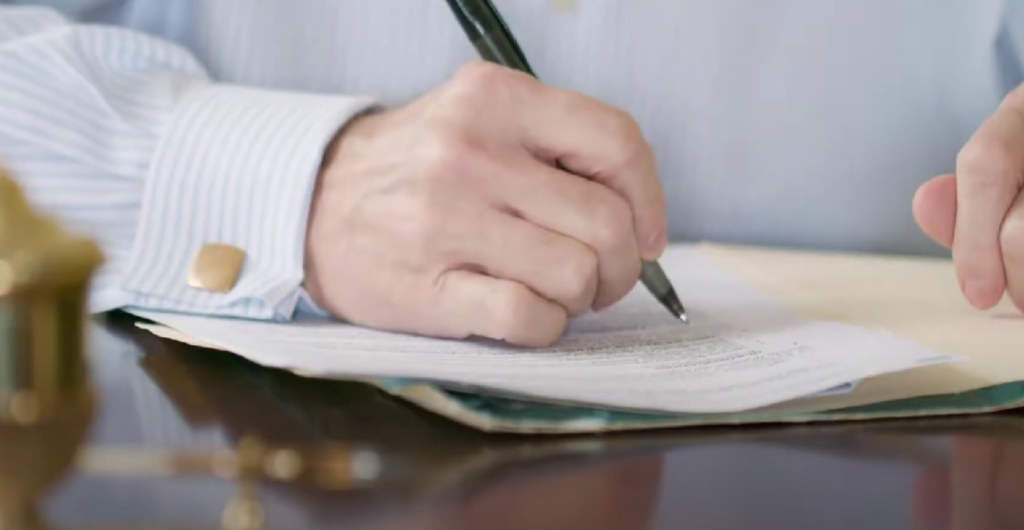Putting your house in a trust involves various financial considerations. It encompasses legal fees, potential tax implications, and ongoing administrative costs.
To make informed decisions about safeguarding your assets, let’s delve into the key factors that impact the overall cost.
How Much Does It Cost to Put Your House in a Trust?
Establishing a trust for your house typically incurs expenses. For a primary residence, recording a new deed may cost $30 to $50.
However, for second homes or rental properties, the cost for deed recording can range from $100 to $225. These figures vary based on your property’s use.
Why You Should Put Your House in a Trust?
Putting your house in a trust can offer various advantages, providing peace of mind and financial security for you and your loved ones. Here’s why you should consider this estate planning strategy:

Probate Avoidance
One of the primary benefits is avoiding probate, a lengthy and costly legal process that determines the distribution of assets after your passing. With your house in a trust, it passes directly to your designated beneficiaries, sidestepping probate court.
Privacy
Trusts offer a degree of privacy not afforded by a will, as they remain confidential documents. This means your asset distribution remains shielded from public scrutiny.
Faster Asset Transfer
Trusts facilitate faster and smoother asset transfer to heirs, sparing them the delays and hassles of probate. This can be especially crucial when your loved ones rely on the property for their well-being.
Flexibility
Trusts are highly customizable, allowing you to establish specific conditions for the distribution of your assets. You can control when and how your beneficiaries receive their inheritance, ensuring it aligns with your wishes.
Asset Protection
Trusts can safeguard your property from creditors and lawsuits. By placing your house in an irrevocable trust, you can shield it from potential financial threats.

Tax Efficiency
Depending on your circumstances, trusts can offer potential tax benefits. Consult with a financial advisor or estate planning attorney to explore options that may reduce estate taxes.
Continuity
Trusts provide a clear plan for the management and disposition of your property in the event of your incapacitation or passing. This ensures your wishes are carried out seamlessly.
Avoiding Family Disputes
A well-structured trust can help avoid disputes and conflicts with your family members over the distribution of assets, as your intentions are documented clearly.
Minimizing Court Intervention
Trusts minimize the need for court involvement in your estate matters, reducing legal fees and potential disagreements among beneficiaries.
Preservation of Property
If you wish to keep your home within the family for generations, a trust can help ensure the property remains intact and well-maintained according to your instructions.

How to Put Your House in a Living Trust?
Putting your house into a living trust is a crucial estate planning step that involves several key actions. Here’s a simplified guide to help you navigate the process:
Choose the Right Trust
Decide whether a revocable or irrevocable living trust suits your needs. Revocable trusts offer more flexibility, while irrevocable trusts provide greater asset protection.
Create the Trust
Consult with an attorney to draft a trust document. This document outlines the terms, beneficiaries, and assets included, such as your house.
Transfer Ownership
To fund the trust, transfer the legal ownership of your house into the trust’s name. This typically requires a new deed, naming the trust as the owner.
Update Titles and Accounts
Ensure all relevant documents, such as property titles and mortgage documents, reflect the trust as the owner.

Notify Relevant Parties
Inform your mortgage lender, insurance provider, and any other pertinent parties about the trust’s ownership of your home.
Maintain the Trust
Continue paying property taxes, insurance, and mortgage payments as usual. The trust should cover these expenses, and you’ll retain control over the property as the trustee.
Appoint a Successor Trustee
Designate someone you trust to manage the trust and its assets in the event of your incapacity or passing.
Keep Records
Maintain clear records of all transactions and correspondence related to the trust and your property.
Review and Update
Periodically review and update your trust as circumstances change, such as acquiring additional properties or experiencing major life events.

Seek Legal Guidance
Throughout the process, consult with an experienced estate planning attorney to ensure compliance with state laws and a seamless transfer of your house into the living trust.
What Influences the Cost of Putting Your House in a Trust?
The cost of putting your house in a trust can vary significantly, depending on several factors. Understanding what influences these costs is crucial for effective estate planning. Here are key considerations that can impact the overall expenses:
Property Value
The value of your house plays a significant role in determining trust costs, as more valuable properties often incur higher fees for transferring ownership.
Trust Type
Whether you choose a revocable or irrevocable trust can affect costs, with irrevocable trusts often incurring higher fees due to their added complexity and asset protection features.
Legal Counsel
Hiring an attorney to draft and establish the trust is a common expense. Legal fees can vary based on the attorney’s experience and location.

Deed Recording Fees
The cost to record the new deed for your house can fluctuate depending on your jurisdiction and whether the property is your primary residence or a secondary home.
Property Location
Different states may have varying legal requirements and associated costs for trust creation and property transfer.
Additional Assets
If you have other assets to include in the trust, such as bank accounts or investments, the overall cost may increase.
Ongoing Administrative Costs
Trust administration expenses, including trustee fees and accounting services, can impact long-term costs.
Tax Implications
Depending on your estate’s size and tax laws, there may be estate or inheritance tax considerations that influence trust costs.

Legal Updates
Periodic reviews and updates to the trust can incur additional legal fees.
Professional Advisors
Engaging financial planners or tax professionals for guidance can contribute to the overall cost.
Complexity
The complexity of your financial situation and your specific wishes for the trust can impact both initial setup and ongoing administration costs.
Where to Get a Living Trust?
While you can find living trust documents in many places, it’s wise to consult an experienced estate planning attorney for the best advice. Estate planning goes beyond just getting documents.
It involves crafting them to minimize probate, family conflicts, and unexpected costs that can erode your estate later on. To secure a revocable or irrevocable trust, turning to a skilled estate planning or living trust attorney is your safest bet.

Is Putting Your House in a Trust Worth It?
Putting your house in a trust can be worth it for many individuals, as it offers benefits like avoiding probate, providing privacy, and facilitating smoother asset transfer.
However, its worthiness depends on individual circumstances and estate planning goals, necessitating consultation with a legal or financial advisor [1] for personalized advice.
Conclusion
The cost of placing your house in a trust depends on various factors, including property value, trust type, legal counsel, and ongoing administrative expenses.
It’s essential to consider these elements and consult with professionals to make informed decisions regarding your estate planning needs.

